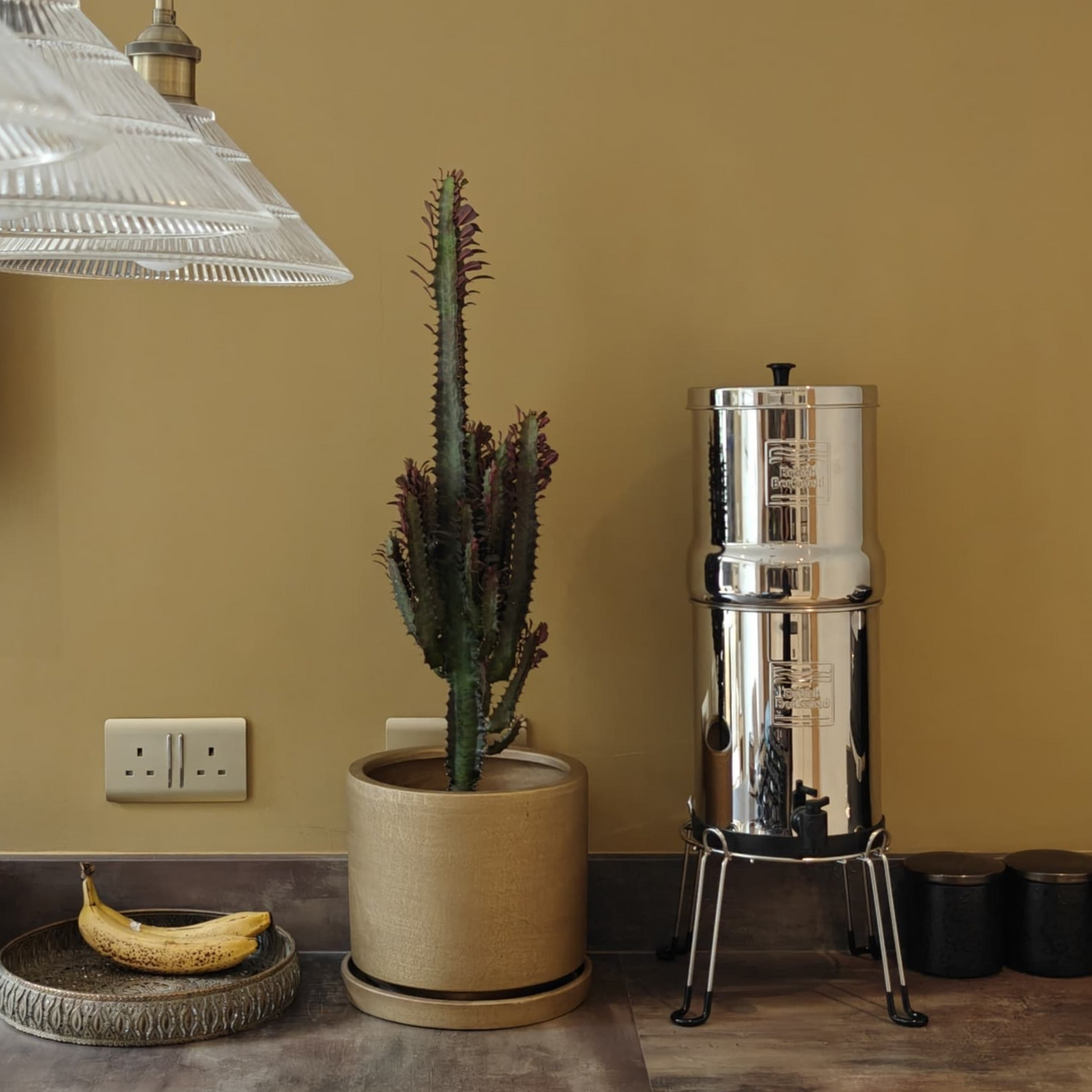Guide to filtering Water in your Home
Filtering water at home using a water filter system is a sustainable and cost-effective solution to add peace of mind and reassurance each day. You may currently be reliant on buying bottled water, adding flavours to your water, or simply avoiding drinking water altogether - but whatever your reason for wanting to introduce an at-home water filter system, there will be a solution that suits your needs.
We know that tap water is safe, reliable and can lie at the heart of many homes. However, there are advantatages to installing a water filter and certain considerations you may need to evaluate before you take the plunge! That's why we've put together a guide to filtering water in your home, allowing you to make an informated decision that works around your daily routine.

Can you filter your tap water at home?
Of course you can! And it’s not as difficult as you might think. Some people may opt for an under sink water filter system that is plumbed directly inside your kitchen cabinet and allows for filtered water to be poured on demand. Others may look for more portable water filter solutions to provide a crisp, clean water supply during home renovations or as a temporary solution. Whatever you reason for filtering your tap water, there will always be a solution available.

How to filter water at home:
There are a range of ways that you could filter water at home. If you're looking for the ultimate guide to water filters, you can take a look at all of the options available by clicking here.
If you're looking specifically for a water filter that harnesses the power of ceramic, then we have a range of options direct from Doulton that can bring the smooth ceramic filtered taste into your home. This includes our discreet under sink filter system range, through to the British Berkefeld gravity systems.
These systems operates solely through the force of gravity, eliminating the need for electricity or external connections. The process involves pouring untreated water into the upper chamber. Subsequently, the water traverses through ceramic filter candles, which could potentially incorporate activated charcoal and other filtration materials. The resulting purified water is gathered in the lower chamber, effectively filtered, and prepared for consumption.
Do home water filters actually work?
Some people may be sceptical around the use of an at-home water filter system and may be already satisfied with their tap water as it is. So when it comes to deciding if a home water filter actually works, it can depend what the initial reason for filtering the water was! We can categorically say though, that Doulton Water Filters do work for both reducing common contaminants that may be a concern in the water, and for helping your water to taste exceptional. They do this through combing decades of research with tried and tested ceramic filtering capabilities. Not only that, but our filters are NSF tested, providing the highest levels of confidence when it comes to whether or not the filters 'work'.
Are home filtration systems worth it?
Regarding the flavour aspect, filtered water offers a crisper and smoother taste. The filtration process eliminates chlorine which can be one of the main issues when it comes to the taste of your water. Our filters also effectively reduce heavy metals such as lead from the water, unquestionably benefiting your well-being. While water filters do reduce contaminants, they can also retain the minerals that are beneficial, preserving water's health enhancing qualities.
Looking at it from a financial perspective, transitioning from bottled water to filtered tap water using a Doulton water filter could result in massive annual savings for your household.
It's also worth considering environmental impacts of your water consumption if you do opt for bottled water currently. Taking approximately 300 years for a plastic bottle to decompose, each sip could impact future generations and the planet that we need to protect.
How long do home filters last?
Each brand will suggest different timeframes for replacing the filter element. Some will say they last up to 2-3 years, whilst others will recommend every 6 months or so. The way that the replacement time is determined is usually based on the material that the filter is made out of, the type of contaminants they filter out, and how many people will be using the water filter system daily. Recommendations can also be based on filter testing and how much water is used versus how many contaminants are reduced by percentage.
Our test data shows that Doulton ceramic filters should be replaced every 6 months to maintain optimum effectiveness and protect your family to the highest levels.
To conclude…
The United Kingdom maintains some of the most rigorous standards globally when it comes to the quality of tap water. Drinking water directly from the tap is undoubtedly safe. However, if you aim to enhance your water quality from 'acceptable' to 'exceptional', it's time to rejuvenate your hydration routine, embrace refreshing water, and begin the process of filtration at home today!
















